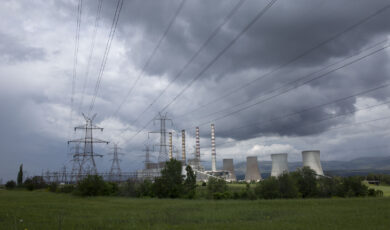DOCUMENTARY: Helping Belgian port to decarbonise faster through the reformed EU Emissions Trading System
North Sea Port (Ghent, Belgium) aims to halve its emissions by 2030 and says it will become ‘climate neutral’ by 2050. The port can already see how the reformed EU Emissions Trading System is steering shipping companies towards decarbonisation.
Shipping represents 3% of global CO2 emissions. According to the International Maritime Organisation, shipping emissions are set to increase by up to 50% by mid-century if strict measures are not implemented. At current growth rates, shipping could represent a tenth of global greenhouse gas emissions by 2050.
According to the Flemish NGO Bond Beter Leefmilieu (BBL), North Sea Port is a good example of a company which takes the climate transition seriously and is open to dialogue with civil society. Despite this commitment, port authorities, such as North Sea Port, still lack the levers to make the transition really happen at the speed we need to avoid dramatic climate change, according to a recent BBL study.
In this context, local civil society organisations, such as BBL, expect port companies to be more ambitious than the Flemish government in developing reliable climate roadmaps in line with the Paris Agreement and the EU Green Deal and to taking the lead on decarbonisation of the shipping sector.
Interviews
“In my opinion: this is the moment. We are bringing all stakeholders, which we call partners, together, and we see that things are happening, that beyond 2030 we can start projects, and really kickstart this transition for marine shipping.”
Thomas Desnijder, North Sea Port representative.
“I think that port companies have the potential to be ambitious. North Sea Port is saying that they want to be ambitious, but we want to see these words followed by actions. They should act according to this ambition. They should be more ambitious for instance than the Flemish government, which is really lagging behind in this respect.”
Jeroen Fonteyn, Energy and Industry Project Manager at BBLV.
“The solutions are available, the technologies are available to industrial sectors, but they will need to be scaled up, and they deserve public support as well. This is where ETS auctioning revenues can come in to help support that transition. We need to stop handing out emissions allowances for free and, at the same time, start investing in solutions for the future.”
Sam Van den plas, Policy Director at Carbon Market Watch
This story is part of the Human Stories project that aims to reveal how the EU ETS affects people’s lives in the path to decarbonise Europe and how this potential can be further boosted.













